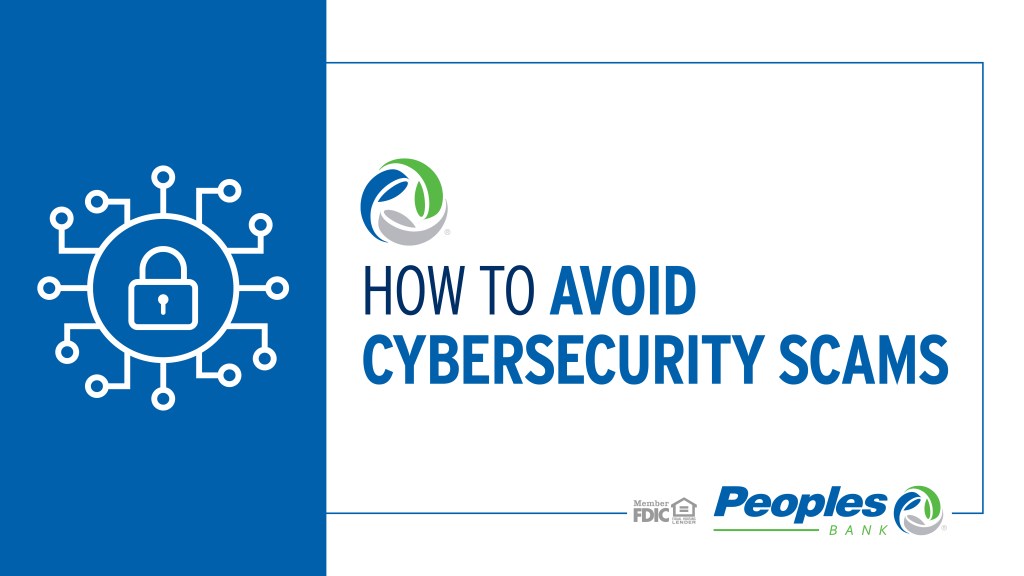It’s easy to think you’ll never fall for a financial scam, but technological advancements are leading to increasingly sophisticated and convincing schemes. That’s why it’s important to stay informed on the latest trends in financial fraud so that you can detect and protect yourself from threats.
Here are five emerging cybersecurity scams to know about and safeguard against in 2024.
Scam #1: Online investment fraud
Online investment fraud involves scammers creating fake online personas to lure victims into fraudulent investment schemes. Scammers may create fake online social media accounts to gain trust, manipulate emotions, and exploit financial vulnerabilities to steal money. These scams often involve cryptocurrency “investments.”
Scam #2: Financial institution impersonation
Bank-impersonation scammers pretend to be security departments at banks, and send out text messages, emails and robocalls that supposedly warn people of unusual, possibly fraudulent activity that requires immediate action. In reality, they’re trying to get people to provide account numbers and login information, or to transfer their funds for safekeeping into accounts controlled by the criminals. In the process, they also may steal targets’ personal information, which can be used to commit identity fraud.
Some fake bank notification texts warn that an account has been locked, while others ask the target to verify a large purchase that supposedly has been made at a store. If you reply ‘no,’ which many people might do reflexively, you’ll get a call from someone claiming to be the bank. Typically, a scammer on the phone will try to alarm the people being targeted, saying that they must take immediate action to protect their accounts from being emptied.
Scam #3: AI-fueled fraud
AI tools can be legitimately useful for many reasons, but they also can be easily weaponized by criminals to create realistic yet bogus voices, websites, videos and other content to perpetrate fraud. No matter what the pitch, anyone asking you to take immediate action or to pay with a gift card is a scammer. Never click on a link in an email or text message without confirming that it’s from a legitimate source. Criminals can craft extremely sophisticated-looking messages, as well as fake websites that convincingly mimic real ones.
Scam #4: Recruitment fraud
Scammers advertise jobs the same way honest employers do — online (in ads, on job sites, and social media), in newspapers, and sometimes on TV and radio. If you’re looking for a new job, be wary of any interactions with a “recruiter” who asks for personal information or requests you pay fees associated with a job, such as training, equipment or travel for interviews. If a job offer raises red flags or sounds too good to be true, make sure to verify the position by researching the company and contacting them directly.
Scam #5: Secondary scams
A secondary scam occurs when the victim of a scam is targeted again in a secondary or follow-up scam. One of the most common types of secondary scams is when a victim of a scam is contacted by a scammer impersonating authorities, a government body, an insurance company, an investigator or a lawyer.
If you have been the victim of a scam, avoid becoming the victim of a secondary scam by independently validating all the credentials available for the company or individual contacting you. Do your own research and don’t rely on information provided to you.
How to protect yourself
While each of these scams are different, many fraudsters use similar tactics to entrap their victims. As such, there are steps you can take to protect yourself:
- Be wary of unsolicited messages
- Be wary of unsolicited social media requests and ensure the account is authentic before accepting or messaging the account
- Resist claims of urgency and threats
- Closely monitor your financial accounts to ensure there is no unexpected activity
- Be careful about disclosing your full name, your home address, your Social Security number, credit card and banking information, and other personal details
- If you receive a call, text, or email, instead of responding directly to the number, call the phone number on the back of your debit (or credit) card
We’re committed to your online security, if you’re concerned about your online security or want help protecting yourself from fraudulent activity, Peoples Bank is always available to answer your questions at 800.374.6123, Monday – Friday, 8 a.m. – 7 p.m. and Saturday, 8 a.m. – 5 p.m.


